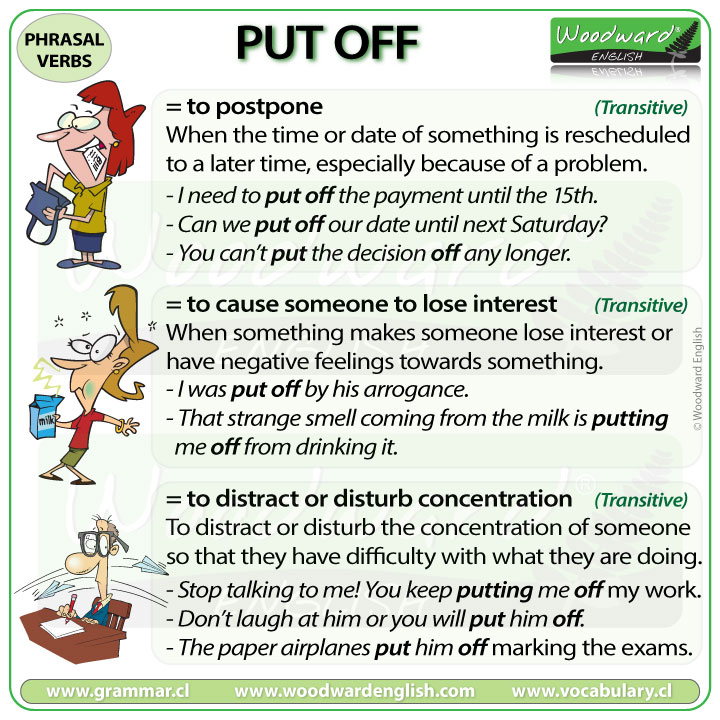The English phrasal verb PUT OFF has the following meanings:
1. Put off = to postpone
(transitive) When the time or date of something is rescheduled to a later time, especially because of a problem.
With this meaning you can have the object in the middle of the phrasal verb or after it. You can say put the decision off (in the middle) OR put off the decision (at the end).
- I need to put off the payment until the 15th.
- Can we put off our date until next Saturday?
- You can’t put the decision off any longer.
- The wedding was supposed to be in July, but they put it off until December.
2. Put off = to cause someone to lose interest
(transitive) When something makes someone lose interest or have negative feelings toward something (or someone). Sometimes this happens because of what they said or did. To discourage someone from something.
- I was put off by his arrogance.
- I used to like that restaurant, but I’ve been put off by their bad service lately.
- Maria was put off by John’s chewing with his mouth open.
- That strange smell coming from the milk is putting me off from drinking it.
3. Put off = to distract
(transitive) To distract or disturb the concentration of someone.
With this meaning you can only have the object in the middle of the phrasal verb NOT after it. You can say put me off (in the middle) but you CANNOT say put off me (at the end).
- Stop talking to me, you keep putting me off my work.
- Don’t laugh at him or you will put him off.
- The paper airplanes put him off marking the exams.
- The fans shouted out obscenities in order to put off the penalty taker.
Put off – Summary Chart

